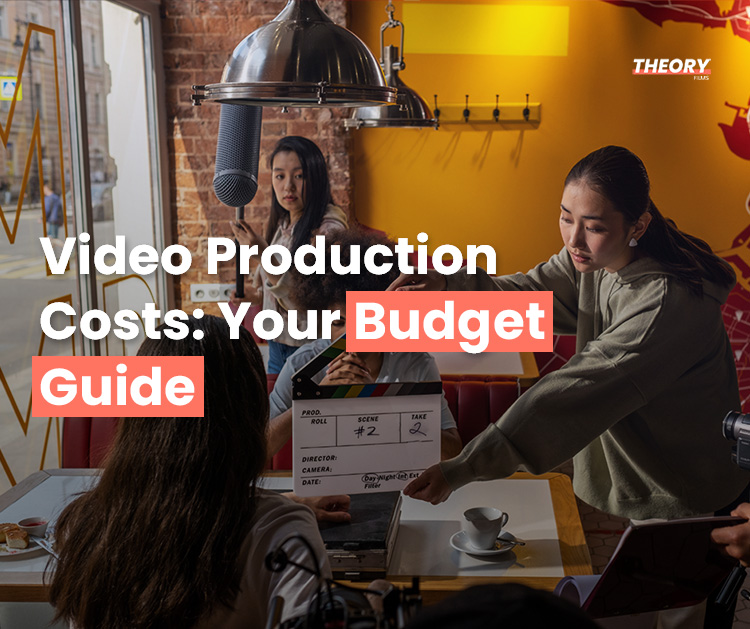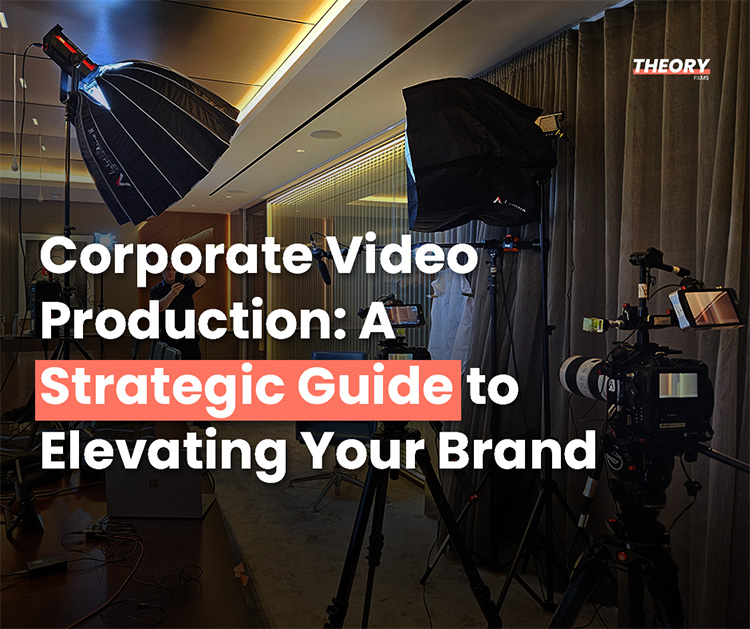Video Production Costs: Your Budget Guide
Worried about video production costs? This guide highlights key factors like pre-production, filming, and post-production. Learn how to budget effectively, explore cost-saving tips, and achieve your video goals with informed decision-making.

Have you ever wondered how much a video production project might cost? It is true that video production can feel like a black box, with costs seemingly appearing out of thin air. But don’t fret! This blog post is here to shed light on the key factors that influence video production costs, empowering you to make informed budgeting decisions.
Key Cost Factors:
Pre-Production:
Scriptwriting and storyboarding: Creating a clear and engaging script is crucial, and its cost can vary depending on the complexity and length of your video. Hiring an experienced writer to write a 2-minute creative promo film can be about £750 – £1250 per script. This may take several days to a week to complete. Storyboarding helps visualise the idea but can impact filming costs. A good artist is about £350 pd, which can also take several days to a couple of weeks to complete, depending on complexity.
Location scouting and permits: Filming on location often requires permits and scouting fees, depending on the chosen location and its regulations. Most locations suitable for filming start from £800 to several thousand a day, depending on square footage and style.
Casting: This includes Talent such as models, actors, extras, and voiceover artists. Talent costs vary significantly based on experience, roles, and platform usage (e.g., broadcast television commercials vs. social media posts). A good casting director may vary anywhere from £1,500 for casting a short promo film.
Equipment rental: Filming equipment can range from basic cameras to high-end drones, and rental costs depend on the chosen equipment and filming needs. Expect to pay anywhere from £100 to £500 per day for basic camera and lighting packages, while high-end cinema cameras and professional lighting setups can reach £1,000 or more per day. This cost variation reflects the difference in image quality, versatility, and features of the equipment.
Pre-production organisation and planning: To ensure the scripted vision translates into a tangible product, the Production Team meticulously organises all aspects of the production, from hiring the crew to arranging catering on the day. They act as the primary contact for the client and all departments, overseeing every detail to ensure the project runs smoothly and delivers the final product on time.

Filming:
Filming days and crew costs: The number of filming days directly impacts crew costs, including salaries and potential overtime pay. Costs can range from £700 to £5,000 per day depending on the size and experience of the crew, as well as the complexity of the shoot. Efficient planning and script adjustments can help optimise filming days and minimise costs.
Travel and accommodation (if applicable): Filming on location might involve travel and accommodation expenses for the cast and crew. These costs can vary significantly depending on the location, travel duration, and chosen accommodation type.
Insurance and permits: Securing filming permits and necessary insurance adds to the budget but ensures a smooth and safe production. Costs for permits and insurance vary depending on the location, type of shoot, and equipment used. Budgeting £500-£1,000 is a good starting point, but obtaining specific quotes is recommended.
Contingencies and unexpected expenses: Unforeseen circumstances can arise, so budgeting for contingencies, therefore, ensures preparedness for the unexpected. Allocate 5-10% of your total budget to contingencies to cover any unforeseen costs.

Post-Production:
Editing, motion graphics and visual effects: Editing transforms raw footage into a polished final product. The cost depends on several factors, including video length, complexity, the amount of archive footage used (if applicable), and desired effects. Motion graphics and visual effects add visual flair but increase post-production costs. A typical 9-hour edit rate is about £450-600 per day, depending on experience.
Sound design and music licensing: Creating an engaging soundscape involves sound design, which can cost around £200 – £500 per day in the UK, depending on the complexity and length of the video. Additionally, licensing music can vary greatly based on the chosen track and usage rights. It’s recommended to explore subscription services offering expansive libraries for a fixed monthly fee.
Colour grading: Raw footage, inherently lacking the desired visual polish, is received by the post-production team. Colour grading plays a crucial role in post-production by enhancing visual quality through colour balance, contrast, and saturation adjustments. This process ultimately achieves a natural and aesthetically pleasing look. Colour grading costs in the UK typically range from £300 – £800 per day, depending on the video length, complexity, and desired level of detail.
Final revisions and delivery: Revisions ensure your satisfaction, but their cost depends on the number of revisions and their complexity. Delivery format (e.g., high-resolution files, online streaming) can also affect costs.

Additional Services:
Animation: Animated elements can add dynamism and help explain complex ideas in a more straightforward way. However, due to the meticulous process involved, they require specialised skills, software, and an extended production schedule. A good animator can charge thousands of pounds per day. However, a good animation department may charge around £600 – £1000 a day for the design and creation of complex 2D and 3D animation built-in packages like After Effects and Cinema 4D.
Green Screen: This technology allows for flexible backgrounds, enabling the placement of your video subjects in various settings without physical location changes. Green screen productions require an experienced crew and increased post-production time for meticulous chroma keying and compositing. Additionally, green screen studio costs in the UK typically start around £600 per day, with the price increasing based on the studio size.
Drone footage: Aerial shots can offer stunning perspectives but involve drone regulations and pilot fees. The cost of drone footage in the UK typically ranges from £150 to £300 per hour, depending on the location, flight time, and required permits.

Transparency and Pricing Breakdowns:
Knowing the ballpark range for different video types can help you plan your budget. While providing exact costs depends on your specific project, here are some general examples:
Explainer videos: £3,000 – £15,000+
Product demos: £7,000 – £25,000+
Testimonials: £3,000 – £10,000+
Remember, these are estimated costs and may vary depending on various factors. It’s always best to consult with video production professionals to receive accurate quotes for your specific project. (Prices are indicative of February 2024). At Theory Films, we offer flexible pricing options and customised packages to fit your budget.
Guiding Clients for Informed Budgeting:
Informed budgeting starts with realistic expectations. Prioritise features based on your budget and discuss alternatives with your video production team. Here are some tips:
Set clear goals and objectives: What do you want your video to achieve? Knowing your goals helps prioritise features and allocate budget effectively.
Creative Flexibility: How you express your video’s core message can significantly influence production costs. For example, green screen technology offers a more established and cost-effective approach than a cutting-edge LED virtual production studio. While both approaches can achieve similar visual results, the established nature of the green screen translates to lower production costs due to readily available technology and expertise.
Communicate openly and collaboratively: Discuss your budget and goals with your production team early on. They can suggest cost-saving strategies and alternative solutions.
Be flexible: Unexpected expenses or changes might arise. Be prepared to adjust your budget or features as needed while maintaining your core objectives.
Conclusion:
Transparency and informed budgeting are crucial for successful video production. Understanding key cost factors allows you to make informed decisions and collaborate effectively with your video production partner. At Theory Films, we believe in open communication and work collaboratively to deliver high-quality videos that fit your budget.






